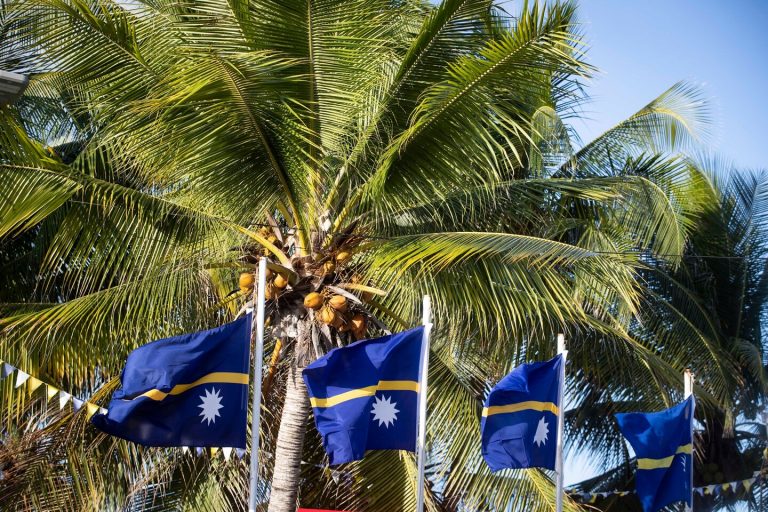“This means that the Republic of Nauru will no longer recognize the Republic of China (Taiwan) as a separate country but rather as an integral part of the territory of China, and will sever “diplomatic relations” with Taiwan as of this day and will no longer develop them. She said in a statement that echoed the usual Chinese descriptions.” “Any official relations or official exchanges with Taiwan.”
The announcement came just two days after historic elections that gave Taiwan's ruling Democratic Progressive Party an unprecedented third term in office, despite Beijing's efforts to sway the vote in favor of the more China-friendly party.
“This timing not only represents China’s retaliation against our democratic elections, but also represents a direct challenge to the international order,” Taiwan’s Foreign Ministry said in a statement. Published online. “Taiwan stands unbowed and will continue to be a force for good.”
We announce with great regret the termination of diplomatic relations with Nauru. This timing represents not only China's retaliation against our democratic elections, but also a direct challenge to the international order. Taiwan stands and will continue to be a force for good.
– Ministry of Foreign Affairs, Republic of China (Taiwan) 🇹🇼 (@MOFA_Taiwan) January 15, 2024
The Chinese Communist Party, which has never ruled Taiwan, claims the democratic island is part of its territory, and leader Xi Jinping insists that unification is “inevitable.”
Nauru's announcement represents another victory for Beijing in its global pressure campaign to poach the remaining countries that recognize Taiwan. Beijing praised Nauru's decision on Monday afternoon.
Nauru, an island of just 8 square miles — many of which are plagued by closed phosphate mines — and a population of 12,000 people roughly halfway between Australia and Hawaii, has few sources of income.
This is the third such move among the small Pacific countries in less than five years after the Solomon Islands and Kiribati switched to recognizing Beijing in 2019.
Now only 11 countries – including Belize, Paraguay and Eswatini – and the Holy See officially recognize Taiwan, as China systematically selects countries that continue to recognize Taipei.
“China is oppressing us and using money diplomacy in every way possible,” Tian Chung-kuang, Taiwan’s deputy foreign minister, said at a press conference on Monday.
“No matter the outcome of the election, China always tries to stifle Taiwan in any international arena,” Tian said. He added that Nauru had requested a “huge amount” of economic assistance from Taiwan in recent years.
He added that Taiwan's Foreign Ministry had received notice of Nauru's plans to sever ties before noon on Monday.
Nauru previously ceded Taipei to Beijing from 2002 to 2005. Taiwanese officials said at the time that China had offered Nauru millions of dollars in aid, and that Taipei was not prepared to enter a bidding war to match that.
The small nation appeared to be standing firm in the face of Beijing's growing influence when a diplomatic spat at a 2018 Pacific Islands Forum over what then-president Baron Waka called “bullying behavior” led to the Chinese delegate being denounced as a “nobody.”
But Waqa was voted out a year later, and the current president, David Ading, informed islanders of the switch in a short video posted on Facebook on Monday.
Anna Bowles, a Pacific expert at New Zealand's Massey University, said the timing of the announcement, in the wake of Taiwan's elections, is not a coincidence and shows China's efforts to dismantle Taipei's network of allies in the Pacific.
“For a long time, the Pacific has served as a buffer for Taiwan’s allies, and they have been successively reduced over the years by China,” Bowles said. She said the ability of Canberra and Washington to influence Pacific countries' relations with China was “clearly low”.
In Taipei, Nauru's decision was seen as an indication of Beijing's dissatisfaction with the choice of Lai Ching-te, whom Nauru considers an instigator of independence, as the next president. The move also shows China's ambitions to shape the broader region, said Chung Chih-tung, a researcher at Taiwan's National Defense and Security Research Institute.
“In addition to warning Taiwan on the one hand, this importantly shows China's ambitions to plant its flag in the South Pacific,” Zhong said. “This will also put significant pressure on countries like the United States and Australia.”
James Batley, who served as Australia's top diplomat to Nauru from 2007 to 2009, said the shift would reinforce Xi's claim that Beijing is obligated to rule Taiwan.
“It reinforces the idea that this is the direction of history,” said Batley, a fellow at the Australian National University. “It is clear that China is working hard with every country that recognizes Taiwan, and it has won.”
Miller reported from Canberra, Australia. Bai Lin Wu contributed to this report.

